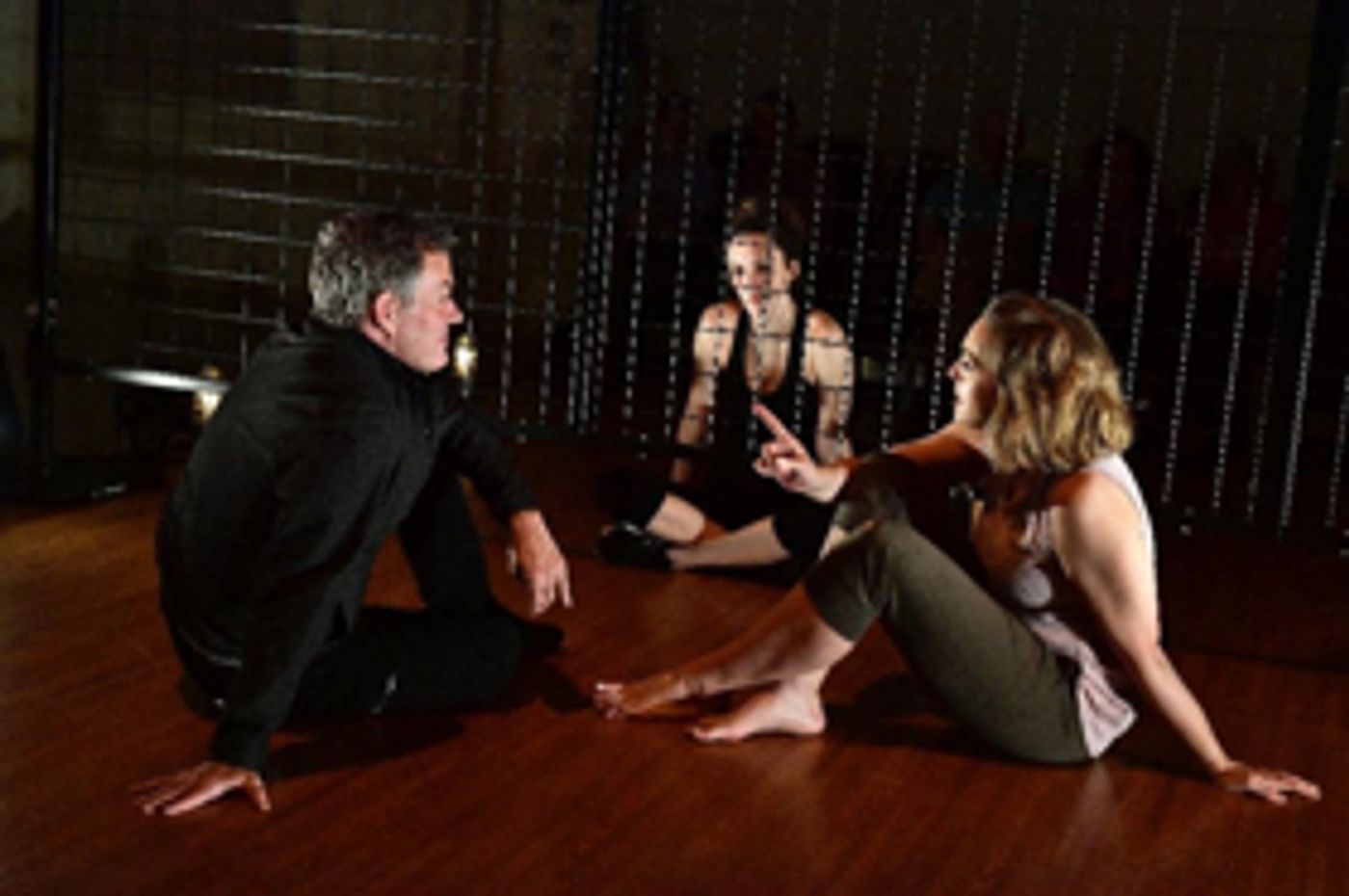Review: THE LAST ACT: World Premiere at Israeli Stage

The Last Act
Written by Joshua Sobol, Directed by Guy Ben-Aharon; Scenic Designer, Cristina Todesco; Lighting Designer, Jeff Adelberg; Costume Designer, Charles Schoonmaker; Sound Designer, David Reiffel; Stage Manager, Elizabeth Yvette Ramirez
CAST: Marianna Bassham, Annelise Lawson, Craig Mathers, Louis Abd El Massih
Performances through June 1 by Israeli Stage Company at Martin Hall, Calderwood Pavilion, Boston Center for the Arts, 527 Tremont Street, Boston, MA; Box Office 617-933-8600 or www.IsraeliStage.com
Minutes into the opening scene of Joshua Sobol's The Last Act, while auditioning for a play, the character of Gilly states, "Theatre should be dangerous, or else it should not be." In that instant, she expresses the philosophy espoused by the playwright, one of Israel's most-renowned, and sets the tone for the action about to transpire. Unable to find a theater in his home country to stage his politically-charged 2016 play, Sobol has come to Boston for the World Premiere Production by Israeli Stage Company, helmed by Producing Artistic Director Guy Ben-Aharon.
Israeli-born, Emerson College alumnus, Ben-Aharon founded Israeli Stage with the mission to share the culture of his native land, but without promoting a nativistic political agenda. In what some of the theater company's followers see as an anti-Israel action, Ben-Aharon asserts the importance of engaging with the audience to spark thought and conversation, regardless of which side of the issue one might align with. To that end, each performance of the hour-long play is followed by a 25-minute dialogue (featuring Sobol and Ben-Aharon on press night).
Directed by Ben-Aharon, The Last Act fields a quartet of accomplished actors, three of whom are making their Israeli Stage debuts. Notably, Louis Abd El Massih (Djul), a Palestinian citizen of Israel, is the first non-American actor to perform with the company. Paired with the amazing Annelise Lawson (Gilly), the duo masterfully creates a dizzying conceit as a couple of actors rehearsing scenes from Strindberg's Miss Julie, while unknowingly being spied upon by Israeli intelligence officers. Djul is a Palestinian and Gilly is an Israeli Jew who knew each other in acting school and may or may not be embarking on an affair. Adding to the intrigue, the spies are Gilly's husband Ethan (Craig Mathers) and his superior Dana (Marianna Bassham), who may or may not have a romantic past with each other.
If you've ever wondered what it would be like to be a fly on the wall, the scenes where Ethan and Dana observe the actions of Djul and Gilly offer an intense example. The surveillance is taking place because Djul is suspected of being connected to Hamas and a potential plot to kidnap Gilly. Much of their conversation can be construed as his attempt to lure her away, but the challenge facing Ethan and Dana is to discern whether what is being said is part of their rehearsal of a script, or if it is actual discussion between them. I confess that I was also challenged by that unknown. However, it is a credit to Sobol's writing that the concentric circles of the plot command our attention, and the authenticity of the compelling performances draws us into the personal drama playing out in the midst of the political backdrop.
Scenic designer Cristina Todesco employs a wall-sized, swinging grate to divide the stage floor into two rooms, representing Gilly's studio on one side and the intelligence center on the other. It also serves as a metaphor for the political wall between Israel and the Palestinians, as well as the psychic barrier between the Jews and the Arabs. Scene shifts and focus are enabled by Jeff Adelberg's lighting design, and costume designer Charles Schoonmaker and sound designer David Reiffel contribute effective components. When the undercurrent of tension and danger that builds throughout the play reaches its climax, it is brought home by the team of designers.
The Last Act is a complex, multi-layered play that draws a parallel with the plot of Strindberg's play, raises some of the issues of the Israeli-Palestinian conflict, and aims a laser at the hostile nature of the political divide, not only in the Middle East, but in our own backyard. Israeli Stage Company's production is not only a worthwhile artistic venture, but also an opportunity to open a dialogue about a problem that is not going away anytime soon.
Photo credit: Paul Marotta (Craig Mathers, Marianna Bassham, Annelise Lawson)
Reader Reviews
Videos

